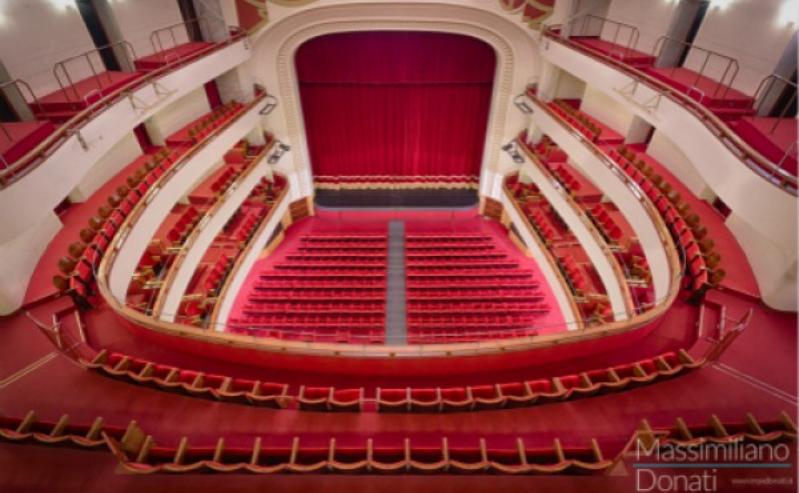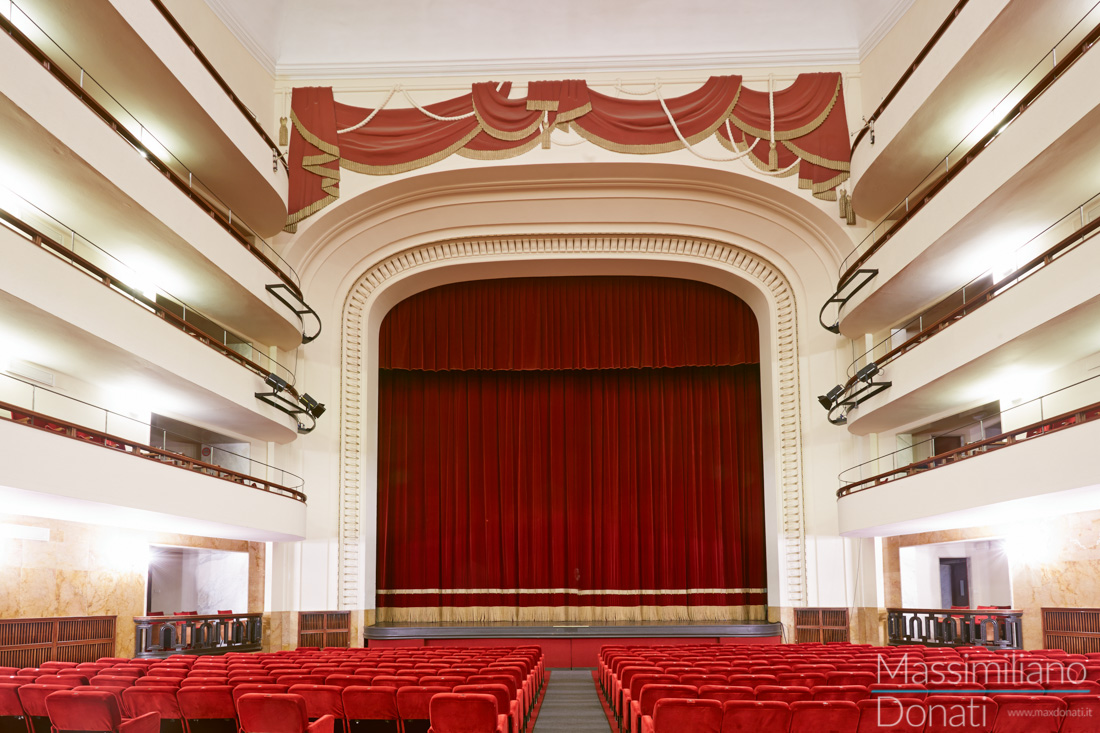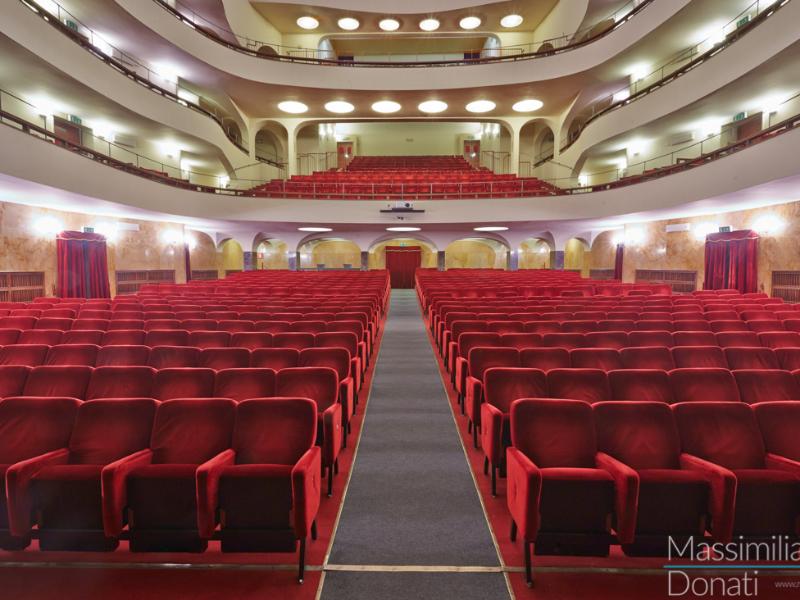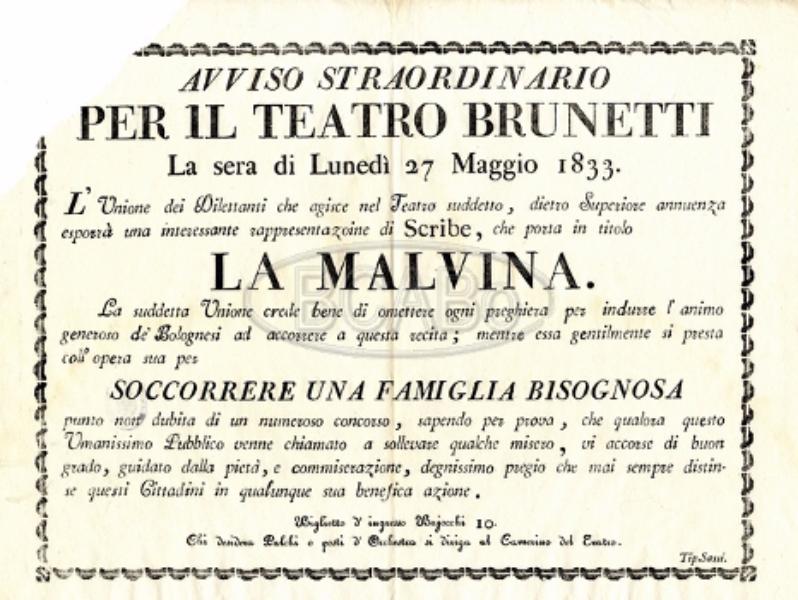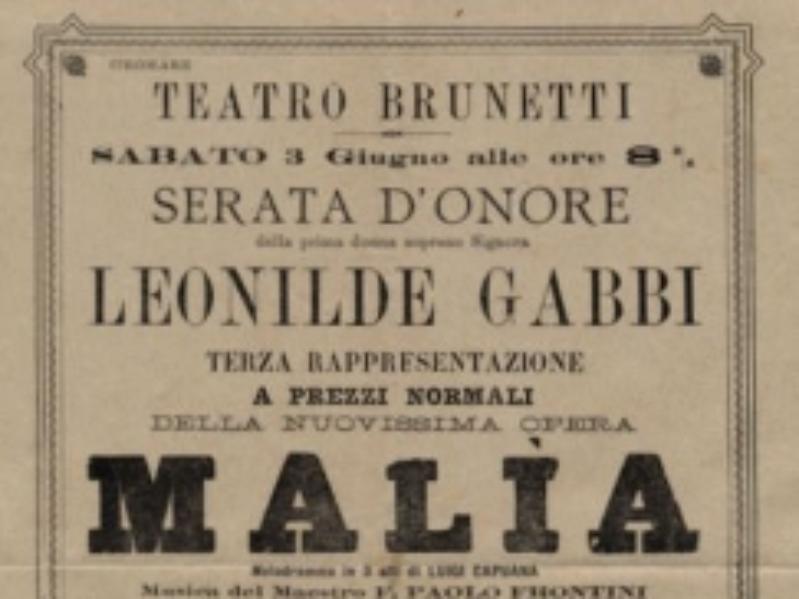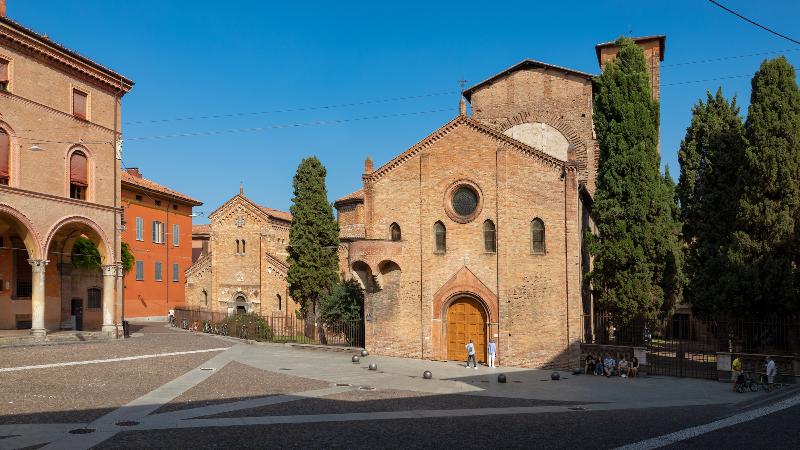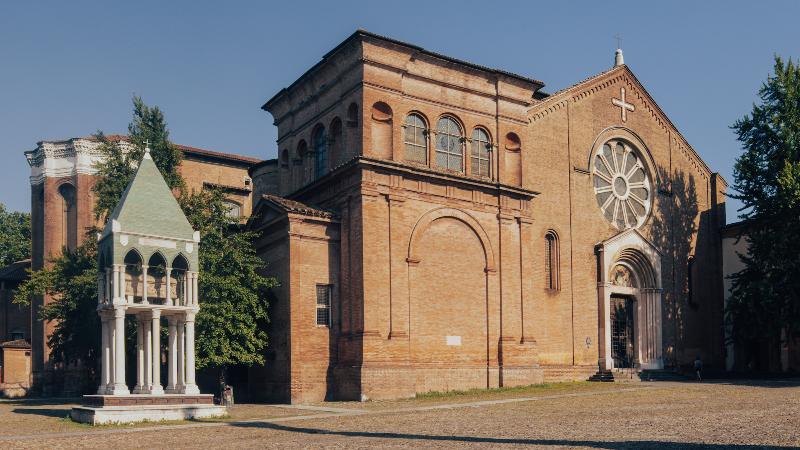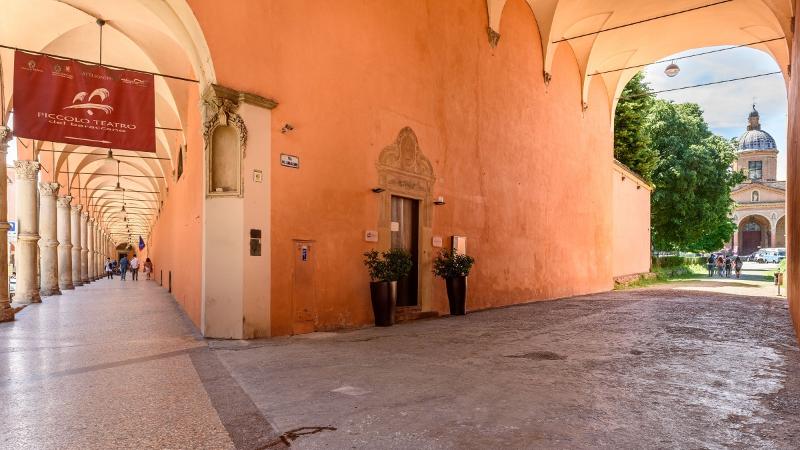Ever since the mid-1600s, Palazzo del Giglio in via Cartoleria included a theatre room dedicated to Carnival and End-of-Year performances by pupils from the Jesuit Collegio dei Nobili. In 1822, the theatre was bought by engineer Antonio Brunetti, who named the hall after himself, rented it for puppet shows and restored it for the first time in 1830. Inherited by grandsons Cesare and Emilio in 1860, the theatre re-opened with opera and, after some additional restoration work, it was inaugurated five years later with a costume ball. The hall presented two galleries with a loggia supported by iron columns, while decorative paintings were made by Valentine Solmi and Gaetano Lodi. Boasting a moving crystal skylight and other modern comforts such as gas lighting, the theatre enjoyed a lot of popularity. Both operetta and popular concerts were introduced in the 1870s. Illustrious guests included King Umberto I and Queen Margherita in 1878, while Crispi and Carducci spoke at conferences and Sarah Bernardt acted in ‘La Dame auxcamélias’ and ‘Frou-Frou’.
The inscription to actress Eleonora Duse dates back to 1898 following a change of ownership. The most recent restorations date back to 1904 according to a project by Lorenzo Colliva and to 1940-42, when engineer Paolo Graziani created the appearance we see today with large galleries replacing the balconies. The most famous theatrical and revue companies, together with ballet companies and the most famous musicians, continued to perform here. Theatre Duse continues to be Bologna’s main playhouse.
The magnificent hall, which seats 999 people - 475 in the parterre, 210 in the first gallery, 221 in the second and 93 in two sets of boxes - maintains its original layout intact. The space is made even more beautiful by the 20th-century frieze above the proscenium and the imposting central chandelier.
Among the most famous and liveliest theatres on a national level, Duse Theatre built its prestige intertwining its work to the most important names in Italian theatre such as Nobel Prize Winner Dario Fo who, in his last few years, chose it to launch its new shows.
Between 1963 and 2010, the theatre was managed by Ente Teatrale Italiano (E.T.I.). The organisation was then suppressed. Afterwards, the destiny of the theatre remained rather uncertain until a group of entrepreneurs decided to save it in 2011. They gave it a new lease of life projecting it into the future while preserving its identity and prestigious tradition.
Map
Teatro Duse
Via Cartoleria 42 - 40124
Telephone: +39 051226606
Email: biglietteria@teatroduse.it
Site/minisite/other: http://www.teatroduse.it/
Interests
- Art & Culture
- Music & Exhibition
